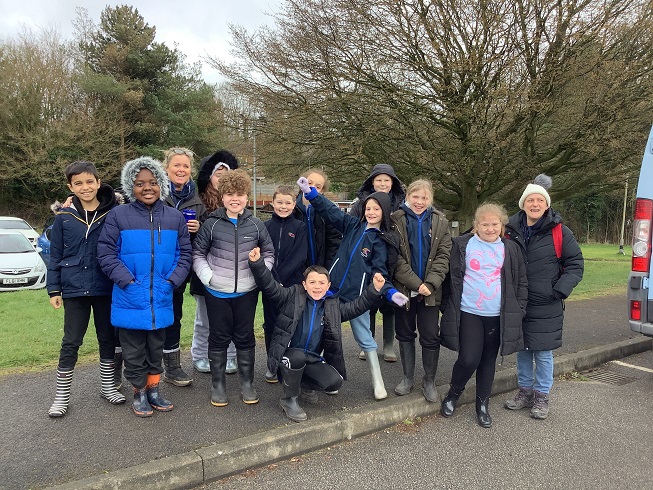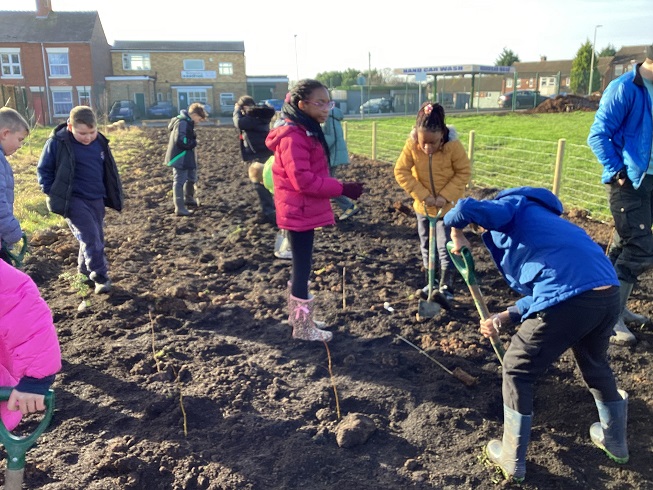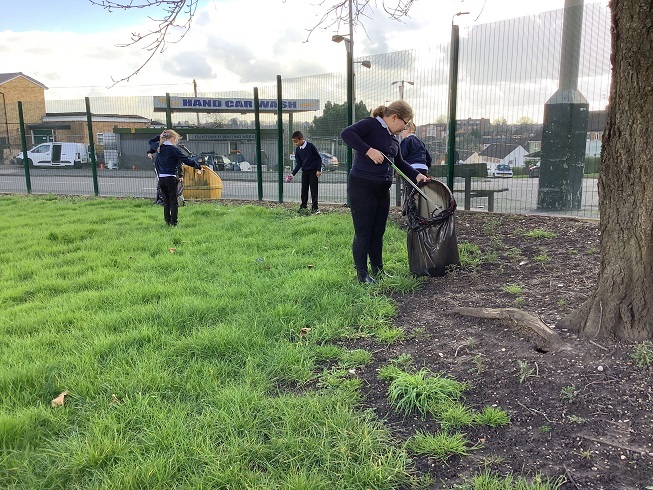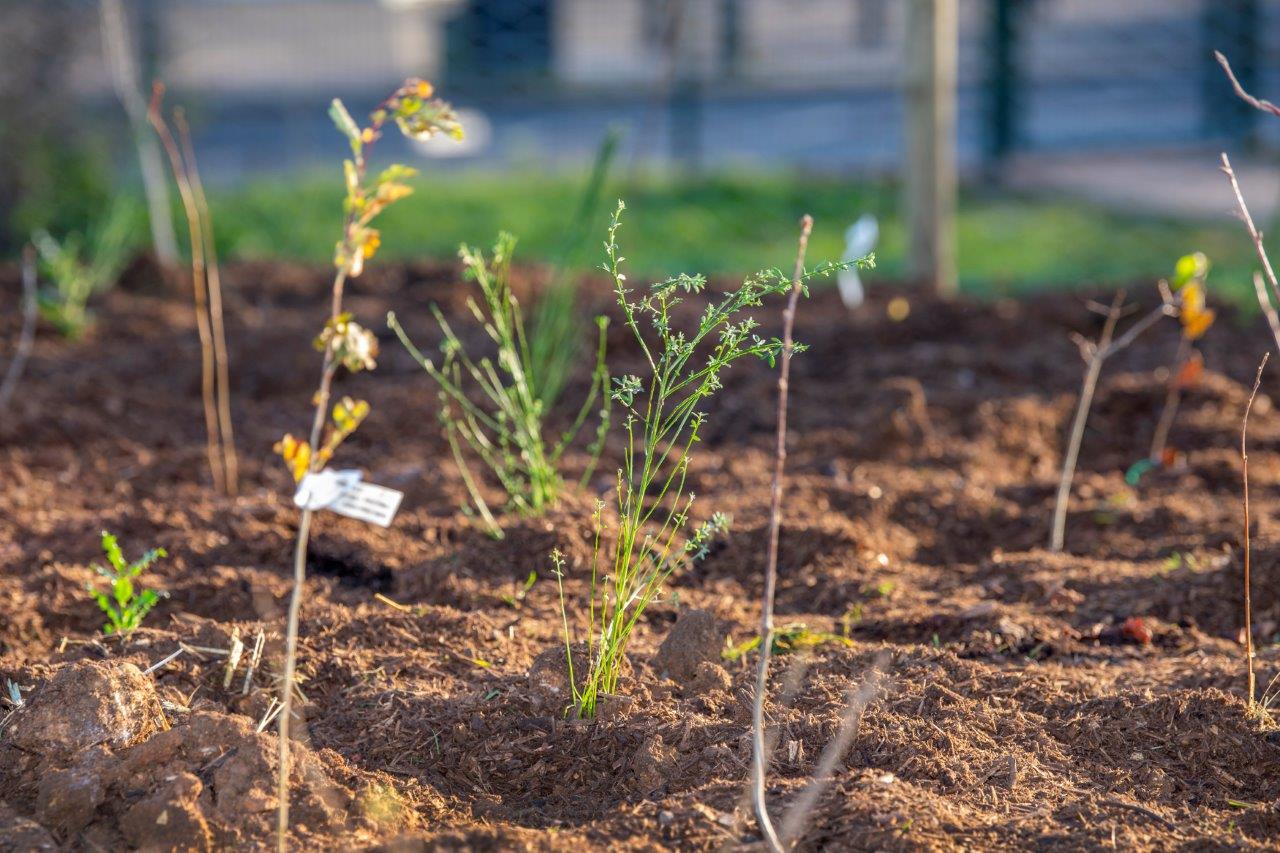Richard Smith is the Eco-Schools lead at Inglehurst Junior School in Leicester. We spoke to him about his experiences of climate and sustainability education.
What is your role?
I run a specialist unit in the school for autistic children, I’m a designated safeguarding lead, and I’m also the lead for Eco-Schools here at Inglehurst Junior School. We’re an inner-city school with about 320 children from many different countries.
Why is sustainability important to you and your school?
I think it’s important to do things that are good for the environment. We need to change our habits to make the future better for the children.
Have you had any training around sustainability or climate education?
Yes. We’ve been doing Eco-Schools for quite some time. I did the Carbon Literacy training from the council, and the Less CO2 programme delivered by Ashden.
What activities have you undertaken at your school?
On the energy side, we’ve got solar panels placed on the roof, and we’ve had the LED lighting changed. We are part of the Plastic Clever Schools programme. We’ve been doing the Litter Less campaign, and we took part in the Mealbarrow competition last year. We also have Severn Trent doing some assemblies about water at the moment.
Every year we have a Global Goals week where each class takes one of the UN’s sustainable development goals and runs with that for a week. So for example, one class might do rainforests, another might do marine life, and then we have an exhibition at the end where parents come and look around the stands.
We’ve also been part of the Tiny Forest programme. We have a field at the top of the road and we’ve turned part of it into an outdoor learning area. We’ve planted hundreds of trees and installed an area with seating.

How do you decide what projects to take part in?
The energy one is quite important because it’s saving the school money. At the moment we’re doing the school grounds, so when I feel it’s looking a bit scruffy I try to do something. I had four tonnes of bark delivered yesterday.
We always tend to do the Litter Less campaign because our field always needs a bit of a spring clean by March or April.
What benefits have you seen for the students and the school?
Obviously there’s a monetary benefit from the solar panels, and we’ve also got a new boiler to make it more efficient. And I think it just puts a bit more pride into the school when the school grounds are looking nicer. We’ve also been part of the Healthy Schools project, so that’s given children a much greater awareness of healthy eating.
How do you decide what projects to take part in?
It’s a mixture of me and the students. We meet on a regular basis and sometimes the children come up with their own ideas. At the start of the year we do an environmental review and see what areas are slipping. So we might say, it’s not looking so good on how we look after our water. Then the premises officer will join us at the meeting and he might come up with different types of taps, or new water butts. So we’ll have a look at the topic and the children will come up with ideas and decide what’s feasible.
The children can be quite right. They’ll come up with a litter picking rota. And we’ll send a newsletter out and the children have said it’s a good idea to put top tips on there on how to save energy.

What barriers have you faced and how do you overcome them?
The number one barrier is finance. Resources are expensive. Another one is not having the right grounds to have a proper forest school or an area where we can have a little fire. The way to overcome that is to train somebody up, but the cost of training that person would be a barrier.
It also needs people who are enthusiastic, and not just one person. You probably need to have a team of more than one or two or three people if you’re going to have a few projects going at the same time.
How do you find out about funding opportunities and projects?
We get a newsletter from the local authority which contains project ideas. Quite often the headteacher will tell us about emails they’ve received or projects that different heads have been talking about.
How do you decide which projects to take part in?
I decide if it’s of interest. For example, the Mealbarrow competition was good because I know the gardening club grows things that we could enter. The Litter Less campaign was quite an easy one because we’ve already got the equipment.
I look at the jigsaw and see what pieces are going on in the school and then try and put them together so we’ve probably got a good half-a-dozen projects on the go.
I don’t invest in things that I don’t think will be worth the effort. When it comes to something like battery recycling, we could do it for three months and end up with 15 batteries. It may be the case elsewhere that children turn up with 300 batteries, but in our kind of catchment area, we’ve tried in the past and it’s not been successful.

What makes a successful project?
The energy that people put into them. For example, with the Mealbarrow competition, the children really enjoyed it and we came in second place and won some vouchers. It looked really, really nice and the children got a lot of pride out of doing it.
So the successful ones are the ones that you invest a bit of time and energy in and there’s an end product that you can see. Another example is our garden area. Making it look nicer is a quick fix that’s both visually pleasing and creates a good resource for the children.
Do you think your approach would be successful in all schools?
I don’t see why not. With Eco-Schools there’s a standard process that you go through and then you can customise it to your school. For example, there’s no point in us saying we’ll go and count the plastic on the beach because we’re nowhere near a beach. And it’s sometimes a little bit much, getting on your high horse and telling the children they should be eating fresh plums and pomegranates every day, when the bottom line is they can only afford a packet of crisps and a chocolate bar. You have to cater to your demographics.
But the basics of litter picking, reducing plastic, having nice environmental school grounds, collecting water from the water butts — these things don’t cost a lot of money and are almost generic. In the main, it’s just common sense.

